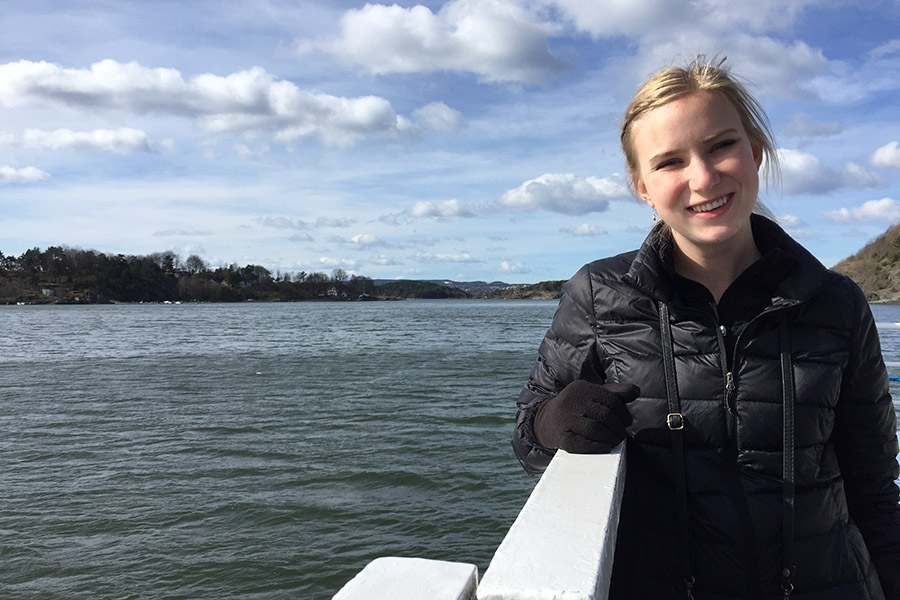
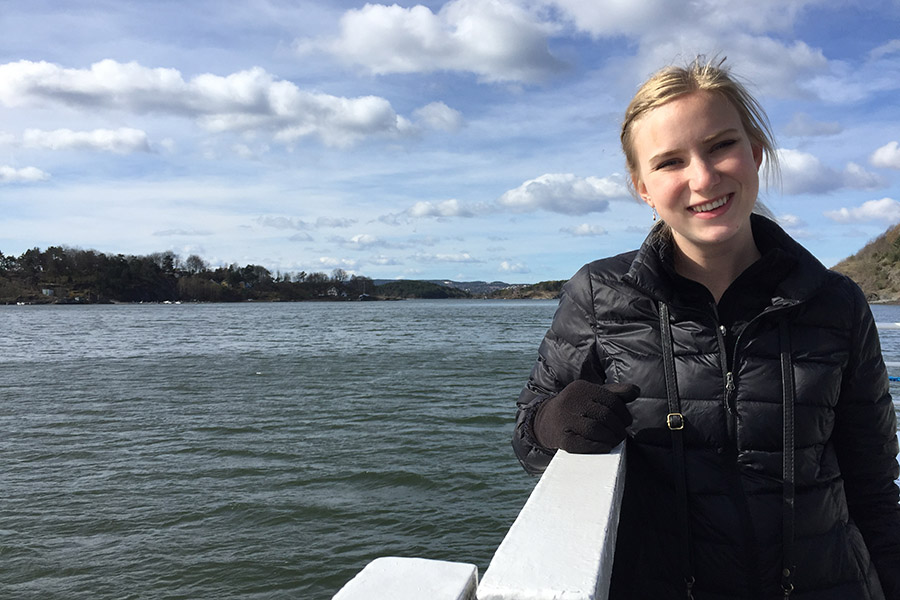 Claire Anderson rides a ferry to the Oslo fjords in Norway. The environmental engineering junior spent the spring semester studying at Lund University in nearby Sweden with support from the Joe S. Mundy Global Learning Endowment. Anderson returned with a new appreciation for the country's focus on balance — in life and in the environment. (Photos Courtesy: Claire Anderson) |
Environmental engineering major Claire Anderson spent the spring semester studying at Lund University in Sweden. It was a trip that carried both professional and personal attraction for her — she’s interested in the country’s environmental sustainability efforts and her ancestors came from the Scandinavian nation.
What Anderson found, she said, was a remarkable concept of balance infused in the country’s way of life.
Here, Anderson shares more about her experiences, which were supported by the Joe S. Mundy Global Learning Endowment.
In Sweden, there is a word, “lagom,” which captures the Swedish concept of balance in life. It means “just right” and is often associated with the phrase, “Lagom är bäst” — “Enough is as good as a feast.”
This phrase does not carry connotations of scarcity but rather states that there is virtue in moderation. This is a really powerful mindset and a shift away from the traditional American perspective of consumerism.
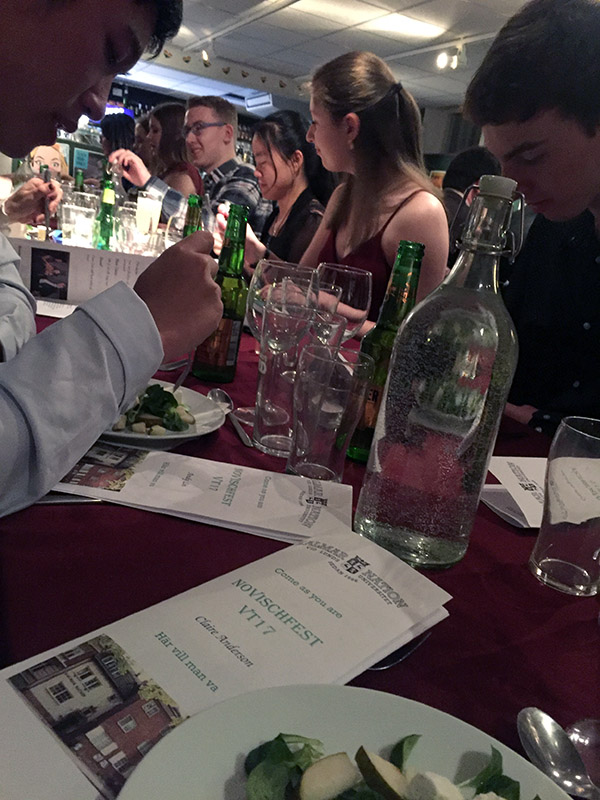 A Swedish "sittning" — a formal dinner where friends gather to eat and sing. These dinners were one of the cultural traditions in Sweden that demonstrated the country's commitment to balance to junior Claire Anderson. She spent the spring semester studying at Lund University. |
This was demonstrated in each aspect of life in Sweden. For example, rather than working until they were overwhelmed and stressed, people in Sweden worked just enough and then took time to relax and come together in a daily coffee break time called “fika.” In addition, friends gathered, ate, and sang at formal dinners called “sittnings” on the weekends.
This reflects the philosophy that you should work hard when needed, but in the end, family and friendship is what matters most.
Another perspective I learned from Europe was the idea that environmental reforms often have to be long-term projects integrated into governmental, societal and economic goals.
Copenhagen, one of the most bike-friendly capitals in the world, worked for decades to achieve this. They have launched long-term advertising campaigns to encourage biking, have created public art works featuring bikes, have created bike lanes, and have made stoplights and street signs specifically for those bike lanes. In short, they have integrated their environmental goals into their cultural goals as well.
Lund also has adopted this method of integration. I personally experienced this by biking every day to class. I was even able to bike 20 miles to a town on the coast because of the well-planned bike lanes and signs. I also was able to recycle or compost everything because of the easy source-separation recycling locations.
I also saw this idea of integration though my classes, one of which consisted of a trip to a nearby district heating plant in Örtofta, Sweden. This plant transports steam or hot water to homes through underground pipelines. This means that residents and businesses do not have to have individual heating systems for water or space.
In this way, district heating increases efficiency and resources by consolidating the systems into one, well-managed site.
This new view definitely will influence my future course of study as I realize now that environmental problems and respective solutions need to be made of sound science, but also need to be economical and well marketed. There are a lot of potential environmental solutions, but scientists need to give people motive to adopt these solutions.
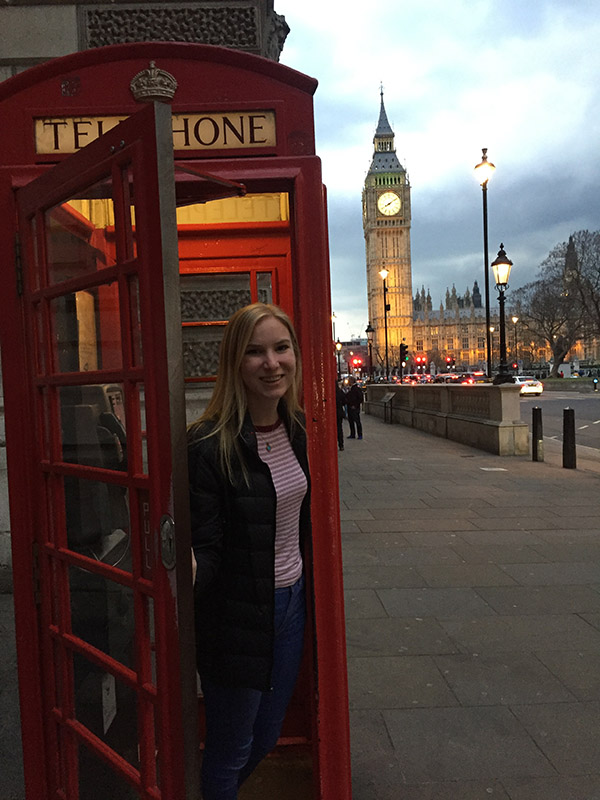 |
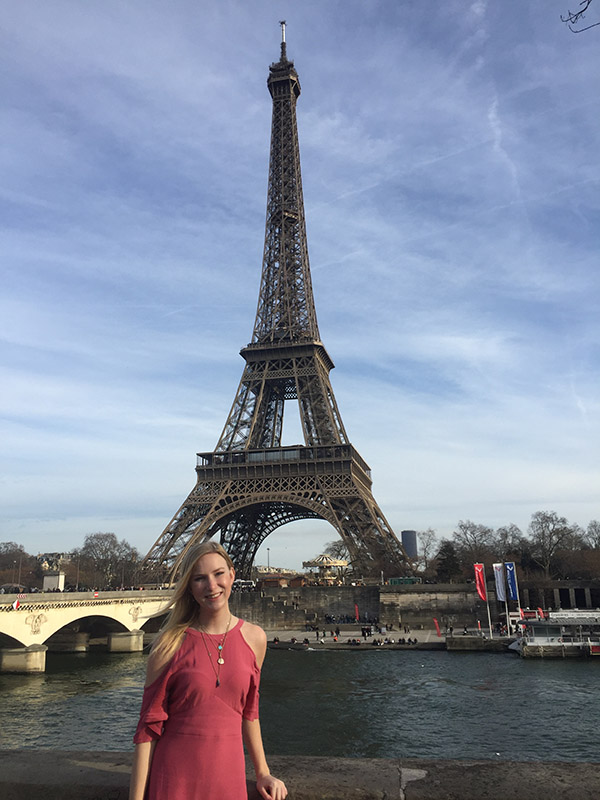 |
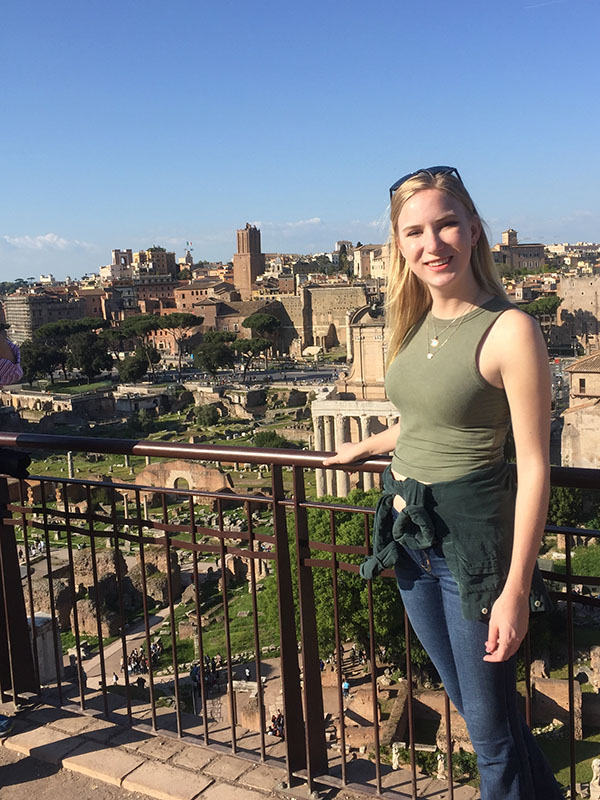 |
| Claire Anderson's semester in Sweden gave her the opportunity to take a number of excursions to other major cities in Europe, including, left to right, London, Paris and Rome. She also met some of her Swedish relatives and visited the home where her ancestors have lived for decades. | ||
On a personal note, I also experienced things I have never dreamed of.
I was able to visit many countries, and, in general, I learned that people are very similar, and that the differences between us should be celebrated, not marginalized.
I also was able to visit my relatives in Sweden, which was an amazing opportunity. My great aunt was able to tell stories of when my grandparents, who are now deceased, came to visit Sweden around 40 years ago.
She had pictures of them in the same home we visited, the same home my ancestors from Sweden lived in years ago.
I have learned so much about the world and myself from my experience in Europe and Sweden. I am very grateful for this opportunity, which was possible thanks to the Mundy Endowment.
